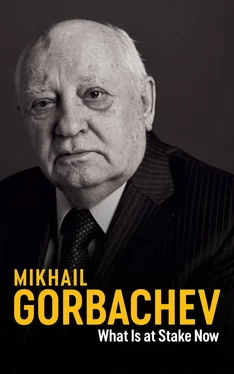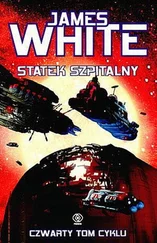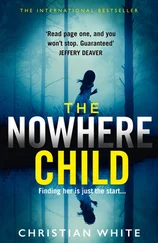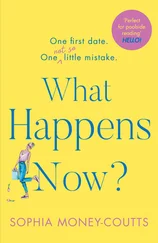The INF Treaty, the Strategic Arms Reduction Treaty (START I) for reducing strategic nuclear weapons and the initiatives of the presidents of the USSR and the USA for eliminating tactical nuclear weapons made it possible to rid the world of thousands of nuclear weapons that had been amassed during the Cold War.
At our first meeting in Geneva in 1985, Ronald Reagan and I articulated the idea that would later lead to the INF Treaty: ‘A nuclear war cannot be won and must never be fought.’ At the same time, our two states were revising their military doctrines in order to reduce dependency on nuclear weapons.
Compared with the peak of the Cold War, the number of nuclear weapons in Russia and the USA has shrunk by more than 80 per cent today – a historic achievement.
This process did not apply only to nuclear weapons, however. There was also a convention for the elimination of chemical weapons, and the countries of Eastern and Western Europe agreed to radically reduce their armed forces and military spending. This was the ‘peace dividend’ reaped above all by Europeans after the end of the Cold War.
Since the mid-1990s, however, a countertendency has emerged: the gradual remilitarization of thought and action, a continual increase in military spending and the dismantling of the arms control system.
Of the three main pillars of global strategic stability – the Anti-Ballistic Missile (ABM) Treaty, the INF Treaty and START I – only the latter remains. But the future of the New START Treaty, signed by Presidents Medvedev and Obama in 2010, is now also being questioned. Judging by statements from representatives of the American administration, it too could soon be history.
Today’s military activities have come to resemble preparations for an actual war. Documents published by the Trump administration show that US foreign policy is increasingly being geared towards political, economic and military rivalry all over the world. The goal is to develop new, more flexible nuclear weapons, which simply means continually lowering the threshold for the use of such weapons.
In light of this, Russian President Vladimir Putin announced to the Federal Assembly that Russia is developing a number of new weapons systems. He explained at the same time that Russia was not looking for a new arms race, an attitude that undoubtedly reflects that of the population. In the past, our country never initiated a competition in building up arms. Instead, it was forced to play catch-up, responding to the challenge from the other side. Today, not only Russia but the entire world is facing a new politico-military challenge.
The USA wants to dominate world politics by relying on military superiority. At least, this is the impression one gets from recent events.
In the process, the USA wants to marginalize the United Nations and the Security Council and, in effect, replace them with NATO – a military alliance that is not only enlarging its own territory but that also aims to expand its ‘sphere of responsibility’ all over the world.
I have never made any secret of my opinion that the decision to expand NATO was a major strategic blunder on the part of the West and a move that tended to destabilize the political and military situation in Europe and beyond its borders. In connection with this, I would like to explain once again how this issue was discussed as the Cold War was coming to an end and what conclusions are to be drawn from that today.
In the years when I was the leader of our country, the issue of NATO was being addressed within the context of German reunification. The prospect of a unified German state joining NATO – an organization born during the Cold War – was viewed with serious misgivings by many in our country. We talked frankly about this with our negotiating partners and proposed possible solutions. After long and hard discussions, we agreed that, as a sovereign state, a unified Germany should decide for itself which organizations and alliances to join. But there was more to our agreements than that.
In the early 1990s, we agreed that the territory of the former German Democratic Republic should be given a special politico-military status. Germany pledged not to station any additional military infrastructure, foreign troops or weapons of mass destruction there. The Germans also pledged to reduce their armed forces by nearly half. Germany has upheld these and other stipulations to this day.
At the same time, the military doctrines of NATO and the Warsaw Pact (which still existed then) were being revised. The plan was to strengthen their political components at the expense of military ones. The member states of NATO and the Warsaw Pact signed an agreement to cut their troop numbers.
Some of my critics reproach me to this day for not having insisted on a legally binding stipulation that would have prevented NATO from expanding into Eastern Europe in the future. But such a demand would have been absurd, even preposterous, because the Warsaw Pact still existed at the time. We would have been accused of destroying it with our own hands.
We achieved all that we could under the circumstances at the time. Russia was fully entitled to demand that the other side act in accordance not just with the letter, but also the spirit of these agreements and obligations. But the mutual trust that emerged with the end of the Cold War was severely shaken a few years later by NATO’s decision to expand to the east. Russia had no option but to draw its own conclusions from that.
The INF Treaty, which was of historic importance to world peace, is itself now history – and its demise is the fault of the USA. The same is true of the refusal to ratify the Comprehensive Nuclear-Test-Ban Treaty and the withdrawal from the ABM Treaty for the limitation of missile defence systems.
If the INF Treaty is terminated by either of its two parties, the country in question must provide a notification stating the ‘extraordinary events the notifying Party regards as having jeopardized its supreme interests’. The country that takes such a serious step must explain to the world community why it has decided to destroy what has been built to date.
What happened? What threat has prompted the United States – whose military spending is many times higher than that of any competing power – to take this step?
Did the USA inform the UN Security Council, which was created for the purpose of resolving conflicts that threaten peace? It did not. Instead, Russia is being accused of alleged treaty violations that even experts have struggled to understand. This all has the tone of an ultimatum.
The argument put forward by the USA is that other countries – particularly China, Iran and North Korea – also have intermediate-range missiles. But this argument is not convincing. In fact, the United States and Russia together still control more than 90 per cent of the world’s existing nuclear weapons. In this sense, our two countries do remain ‘superpowers’. The nuclear arsenals of other countries are ten to fifteen times smaller.
If the process of reducing nuclear weapons were to continue, other countries would at some point have to join in, including the United Kingdom, France and China. These three states have repeatedly confirmed their willingness to do so. But how can they be expected to show restraint when one of the superpowers wants to lift the existing limitations and expand its nuclear arsenal?
One has to conclude that the USA has decided to withdraw from the treaty not for the reasons it claims, but for a very different purpose: the pursuit of military superiority and a burning desire to cast off any restrictions on rearmament. ‘We have more money than anybody else by far’, President Trump has said regarding the arsenal of the USA, ‘and we’ll build it up until they come to their senses.’ Build up the arsenal – why, to what end? To impose the country’s will on the world?
Читать дальше












